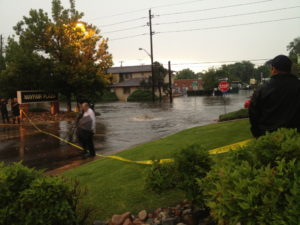
Small Business Legal Checklist
Small Business Legal Checklist
As a small business owner, you must wear a lot of hats! Unfortunately, one of the hats that is difficult to wear is the one involving legal matters. Whether you are just starting a business, are making changes in your current business structure, or are exiting a business, getting small business legal advice can be crucial. In an ideal world, you want to protect all you’ve built as much as you can and avoid any missteps along the way. Use this small business legal checklist to get your legal matters in order to prevent feeling overwhelmed or anxious about missing an important step.

Legal Help for Starting a Business
Starting a business often requires the most attention and legal advice since there are many different things to consider, such as:
Choose Your Business Structure
During business formation, you will need to select from a variety of legal structures for your company. This should be one of the first items on your small business legal checklist. Each type of business provides distinct organizational possibilities, each with its own set of tax and liability concerns. Prior to making a selection, you should extensively examine each legal structure and speak with an attorney and an accountant. These business types include:
- Sole Proprietorship
- LLC
- Partnership
- Corporation
Forming Contracts Between Owners
A contract is a legally binding agreement between two or more parties. If you own your business with other parties, it is important to have sound contracts stating the parameters of ownership – you can think of it as a prenup agreement for your business. Contracts are meant to protect your business and resources, as well as your personal assets if they are correctly constructed. Unfortunately, faulty contracts may do the opposite.
Contracts with Third Parties
As a small business owner, you will likely have contracts with customers, vendors, employees, contractors, and other individuals or businesses. While some business owners still rely on handshakes to confirm an agreement, in the legal realm, the one who has everything written down is usually the winner, especially if the terms are clear and concise. Always acquire a written confirmation, especially when the agreement involves the exchange of money or intellectual property.
Legal Help For An Existing Business
Even if you have already been in business for many years, you still may encounter situations where you need legal advice, such as:
Signing A New Lease
Throughout the life of your business, you may lease several different office spaces, whether it is for relocation or an additional location. The laws surrounding a commercial lease vary from state to state. When entering into a commercial lease in Colorado, consider factors such as what is prohibited on the property, how rent is calculated, if the rent will increase over time, and what obligations you have as a renter. Being a commercial renter is extremely different from residential so make sure you know what you are getting into before you sign a commercial lease.
Employment Law
Once your business has been up and running for a while, you may find that it’s time to start hiring employees. Both Colorado and federal employment laws aim to identify and defend the rights of employers and workers in the context of a commercial relationship. The objective is to guarantee that all parties are treated fairly by each other and the courts if required. There are subtle differences between employees and contractors that a small business lawyer can help you sort through.
Legal Help When Ending a Business
The process of exiting, dissolving, or selling a business can be tedious and require consulting with an attorney with experience in this area and matter such as:
Closing a Business Without Selling
Before you can close the doors on a business for good, a lengthy number of processes must be completed. These frequently involve legal procedures that involve the help of a business attorney. In some cases, in addition to the lawyer, an accountant is required to dissolve the firm. While a legal representative can verify that legal paperwork is completed appropriately, an accountant can examine revenue, income, and all outbound transactions to ensure that everything is lawful and that the books are free of any questionable activity. Depending on the reasons why the business is closing, you may also need the help of other professionals which your attorney or accountant can recommend based on your circumstances.
Transferring A Business To A Successor
When the owner or a senior-level partner retires, becomes disabled, or dies, small firms and partnerships without sound succession plans often collapse. Family companies, in particular, require proper succession planning because they must either identify family members who are suited for leadership roles or consider other possibilities outside the family and consider tax implications for transfer of the business to the next generation. The keys to a successful hand-off include planning ahead of time, basing decisions on business needs while also managing family expectations for family businesses, knowing the current state of tax law, and reviewing the plan as conditions change.
Selling Your Business To A New Owner
There are several factors to consider when selling a business, such as the business’s value, what portion of the company will be sold, and when the sale will take place. It is crucial when drawing up a purchase agreement that a business attorney with experience in business sales or acquisitions takes the time to thoroughly review all documents.
Elizabeth Lewis, MS, JD Is Your Denver Small Business Lawyer
Regardless of what stage your business is in, this small business legal checklist should help you identify areas where you may require legal advice. Law Office of E.C. Lewis, P.C. understands that the laws governing these areas are always changing, so even if you’ve run a Denver small business for decades, it’s a good idea to keep in touch with a Colorado business attorney on a regular basis to discuss any recent changes. Schedule a consultation today!








